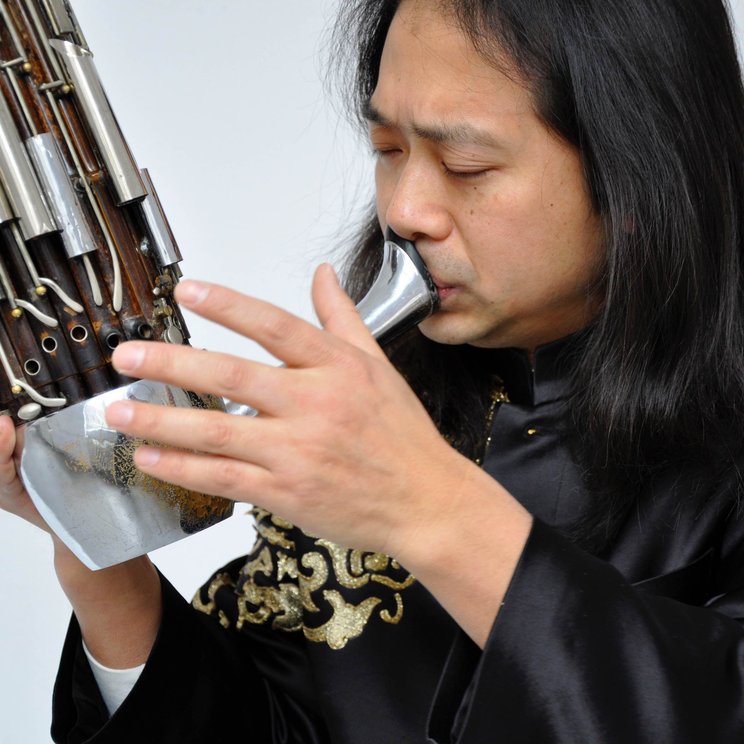
Wu Wei
Vita
Born in Jiangsu Province in 1970, Wu Wei grew up with traditional Chinese instruments, which his father played as well. At the age of 15, he decided to train on the sheng, the Chinese mouth organ: a metal wind instrument and harmonica with up to 37 pipes, it has a history reaching back more than 3,000 years. In 1989, Wu Wei began his studies of the instrument at the Shanghai Academy of Music, and in 1995 he received a scholarship from the German Academic Exchange Service that enabled him to continue his studies at the Hanns Eisler Academy of Music in Berlin. While there, he found a significant mentor in Rolf Zielke, a jazz pianist who opened up the world of improvisation for him. He won first prize at the international music competition “Musica Vitale” in 1996 and again in 2002. Wu Wei plays traditional as well as early and new music and jazz. He has premiered more than 400 works, including over 20 concertos for sheng and orchestra by such composers as Unsuk Chin, Toshio Hosokawa, Enjott Schneider, Jörg Widmann, and Tan Dun. He has worked with the Berlin Philharmonic and Kent Nagano, the Los Angeles Philharmonic and Gustavo Dudamel, the Orchestre National de France and Myung-Whun Chung, the Royal Stockholm Philharmonic Orchestra and Susanna Mälkki, and the BBC Symphony Orchestra and Ilan Volkov. Wu Wei also performs with such early music ensembles as the Lautten Compagney and with such new music formations as Ensemble Modern and Ensemble intercontemporain; he additionally plays jazz with the French accordionist Pascal Contet and the Large Ensemble. Wu Wei is also a successful composer himself. His recordings have received such awards as the German Record Critics’ Prize. From 2013 to 2016, he taught as a professor in Shanghai. He now lives again in Berlin and is a German citizen.
July 2023